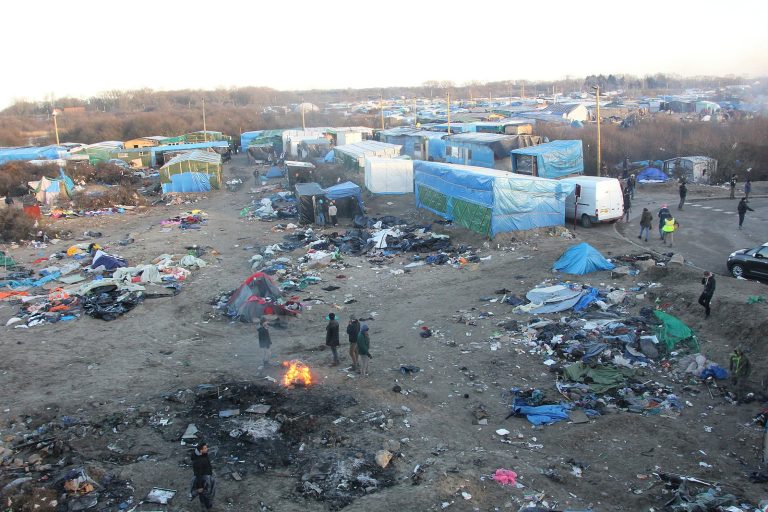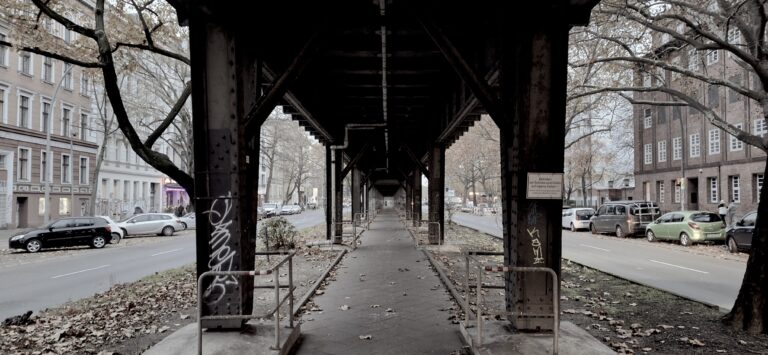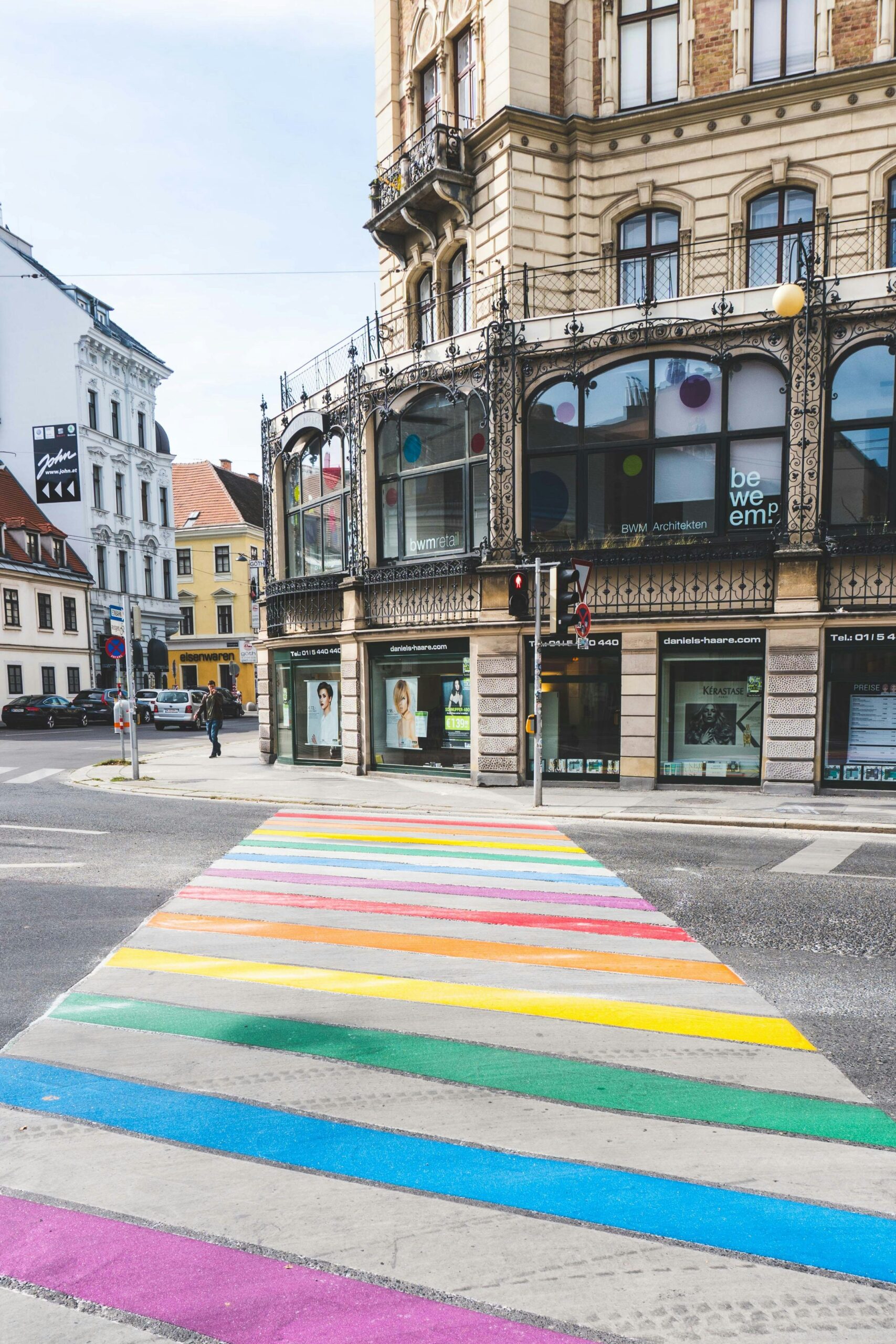A French grape vendor at the market briefly transforms into a language teacher to help his British client pronounce the “u” in “muscat” correctly. It’s a highly ambitious undertaking, given the complexity of the sound for native English speakers.
While the scene may seem absurd at first glance, it’s pretty typical in Eymet, a village that’s received the moniker France’s “most British town.” This region of France is no stranger to the British. Aquitaine, the area where Eymet is located, was ruled by the English Crown for centuries, most notably by the famous Queen Eleanor of Aquitaine. However, today, the population of Eymet offers a distinctly modern example of the French-British relationship.
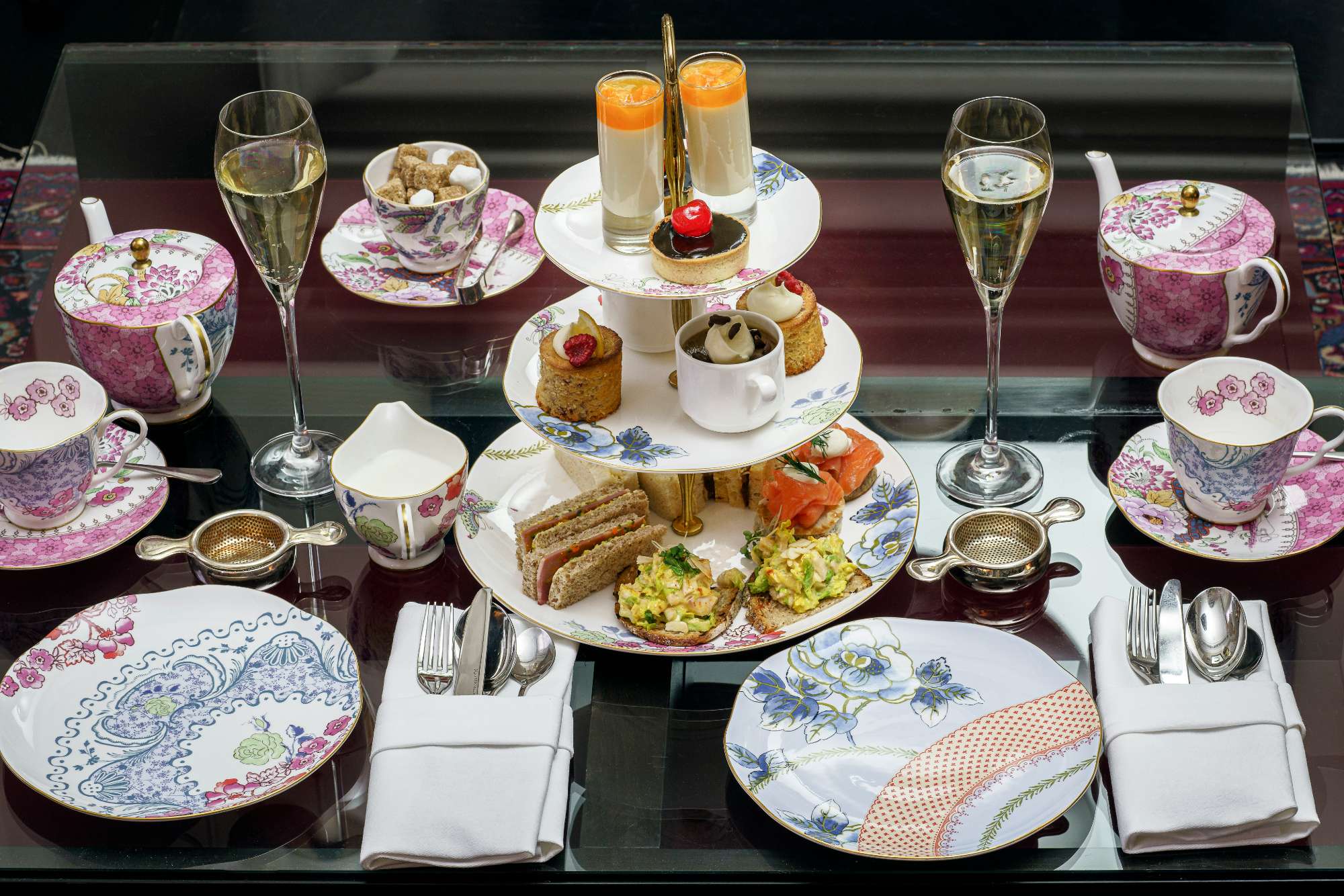
Eymet is very special
In many respects, eccentricity is what best defines this small French town.
Rural municipalities often experience the decline of their town centers. Eymet, however, bucks this trend. According to Rose Lallemant, a communications officer for the city council, a vibrant hustle and bustle remains “all year around,” regardless of the season. Numerous restaurants offer a diverse range of cuisine from around the globe. It’s unusual for such a small town to have so much culinary diversity.
However, one of the town’s main peculiarities is its thriving British community.
Among the approximately 2,700 inhabitants of Eymet, around 400 are citizens of the United Kingdom, with the majority being of English descent. That population includes a mix of retirees and younger families. Many more visit regularly, temporarily increasing the number of Brits in the town.
The phenomenon is not unique to this village nestled in the rural département of Dordogne. The latter has many cross-Channel residents, similar to many regions in Southwest France. However, the presence of British citizens is particularly noticeable in Eymet, where British residents operate a significant portion of the local businesses.
Rose’s English Vintage Tearoom or A Taste of Britain grocery store, where people can find Marmite, baked beans, and all the classic commodities to soothe a craving for home, are just some of the indicators of the town’s thriving British population.
“When I tell people where I live, they respond: ‘You’re in the English village,’” said one French retiree from Eymet.
According to Terrie Simpson, the co-founder of the Eymet-based real estate agency Agence Eleonor, many people believe there are more British residents than French in Eymet, even though Brits only make up around 15 percent of the population.
“Everyone says that there are only English folk in Eymet,” said Simpson, who is originally from Manchester, England.
Listening to people speak on the town’s streets, especially on market day during high tourist season, it’s understandable why people would get the impression that there are only British people living there. Yet, Simpson argues that this is because many of the people out during the day are retirees or vacationers, people who tend to spend their days wandering the city streets. That doesn’t mean there aren’t others.
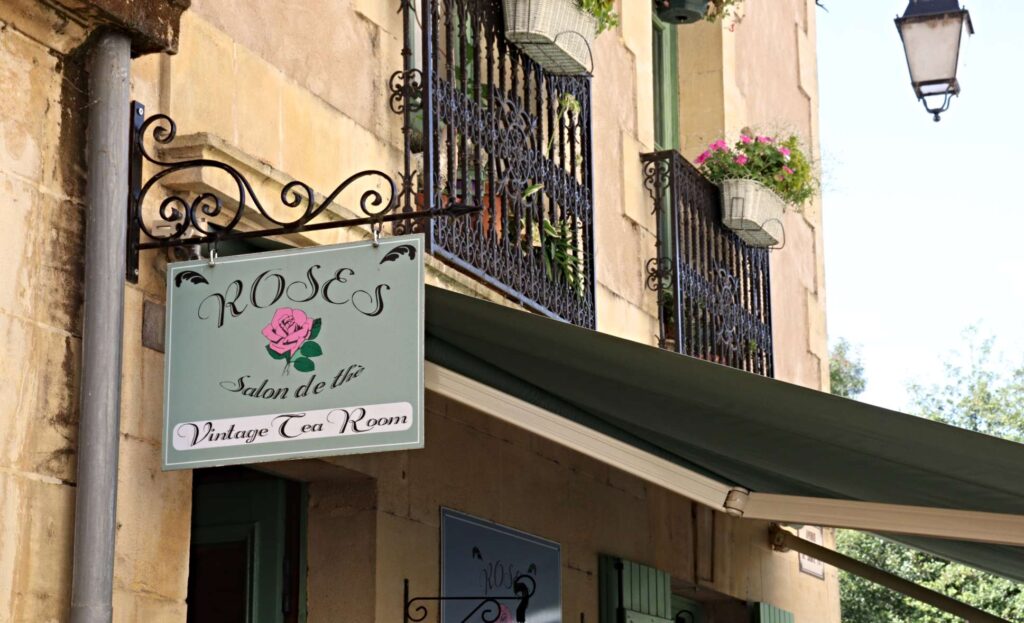
An era of “Entente Amicale”
The majority of Eymet residents agree that a happy French-British cohabitation is unfolding in the town, worthy of the historical Entente Cordiale, a series of agreements that France and Britain signed in 1904 to foster closer diplomatic ties and resolve old disputes.
In July 2025, the governments of both countries upgraded the historical agreements to become the Entente Amicale, ushering in a new period of French-British friendship.
The strong relationship between the two countries is often on full display in the town. Only sports can rekindle the embers of rivalry. Many residents suggest that tourists visit Eymet’s bars and pubs in February, when the Six Nations Championship, a rugby competition between France, England, Ireland, Italy, Scotland, and Wales, is in full swing.
Lallemant argues that “there are no notable cases” of xenophobia or intercommunity conflict among residents. Sometimes, however, visitors can make strange remarks about the blend of cultures. Sara Ghazali, who recently opened a bookshop in Eymet called La Mauvaise Herbe, said tourists told her that Eymet is “invaded.”
“No, we are not,” she laughed.
Despite the relatively low level of friction, some locals expressed frustration that many British residents don’t speak French.
In response, Lallemant and her colleagues have grown accustomed to bilingual communication. They aim to ensure the town’s foreign residents “do not feel left out.”
Rising prices bolstered by wealthier cross-Channel newcomers are a potential point of contention. Yet, paradoxically, it’s also a consequence of the economic dynamism that such a rural town often lacks. Locals and British residents both frequently argue that the new community saved Eymet.
In everyday life, the British contribution is undeniable. Brits are consumers, keeping businesses going all year, and investors too. Rue du Temple would be a much less vibrant street without Eymet Le Livre, Café Sara, or A Taste of Britain. Jane Patterson, the latter’s owner, said she believes the influx of foreigners has benefited the French.
Beyond the economic element, the British newcomers also contribute to demographic dynamism. An increasing number of young families with children flock to Eymet. Since countryside schools are closing in droves, “it’s good for such a small town,” Simpson, the owner of Agence Eleanor, pointed out.
That’s in contrast to the earlier wave of migration, which mainly brought in members of older generations when it started a few decades ago.
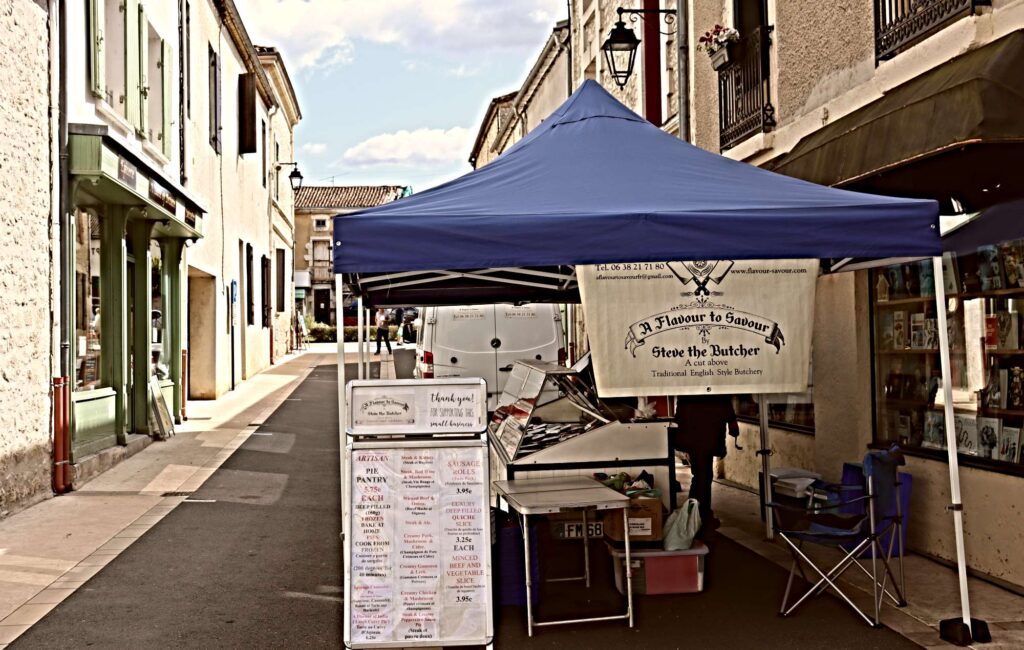
A thriving community built on a privileged migration
Pinpointing the exact moment when Eymet began to develop a British character is challenging. The 1970s may mark its inception, when a few affluent individuals purchased holiday homes in these picturesque surroundings. From the outset, that set the tone for a migration rooted in privilege, a very different experience from that of others crossing the Channel.
From there, the migration unfolded slowly and began to accelerate in the 1980s and 1990s, reaching a crescendo when the United Kingdom eventually left the European Union following the 2016 Brexit referendum.
Just before Brexit, which became official on February 1st, 2020, following lengthy divorce negotiations between officials in London and Brussels, Simpson sold many homes to cross-Channel newcomers who wanted to settle before it became too administratively complex and costly.
Simpson initially feared that she might lose her British clientele because of Brexit. However, the British continued to flock to Eymet, revealing that their interest in the place transcended any administrative difficulties.
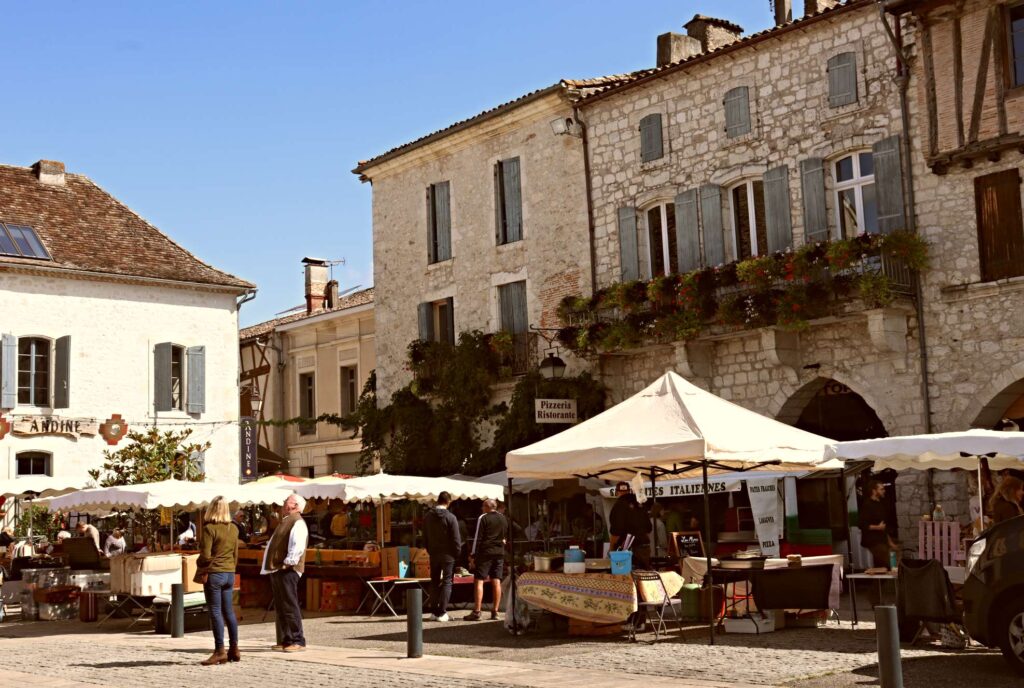
The stars align for Eymet
“When I arrived, it reminded me of Beauty and the Beast,” Simpson said.
For many, Eymet’s idyllic landscapes alone are a reason to settle. The quality of life doesn’t hurt either. Sun and good wine are often enough of an incentive to buy a house and settle down.
“We don’t have this in England,” Simpson laughed.
Terry Boyce, previously a physics teacher at the University of Hong Kong, and his partner, Kinet Leug, have run a bookshop in Eymet for about five years. They arrived from Hong Kong in 2018, having escaped an urban environment that had become hell for them.
“The French lifestyle is the most attractive thing,” Boyce said.
The properties are, “of course,” also cheaper than their equivalent in the United Kingdom, Simpson admits. Many Brits can afford to buy property in Eymet without a mortgage. And those houses often cater to the bucolic tastes of British clientele: old stone, land, dovecotes, and proximity to a vibrant town.
Some come to refurbish old ruins. Chris, who often visits the town’s market via motorcycle, is one of those hobbyists. When not in his native Yorkshire, he uses the 6-month visa that post-Brexit rules provide to British citizens to renovate an old farm he purchased, just a short drive away from Eymet.
“Amazing architecture!” he gushed, showing pictures of the property he’s purchased.
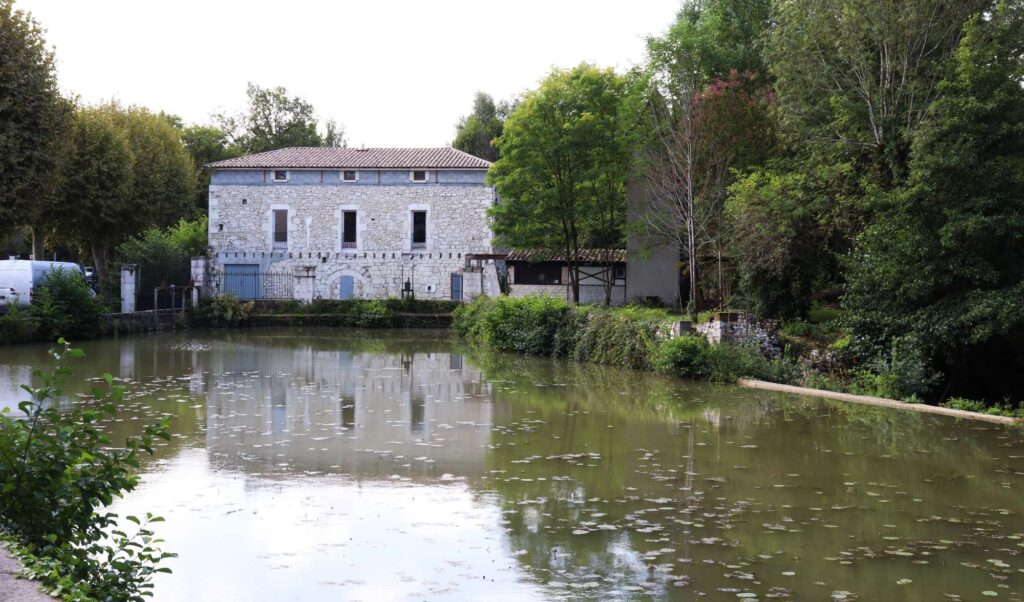
Typically, in such a rural location, it can be challenging or time-consuming to reach major cities and airports. Eymet doesn’t have this problem. The Bergerac airport is located approximately 25 kilometers (15 miles) away and offers low-cost flights to the United Kingdom.
There are numerous flights between Bergerac and Britain, a response to the ongoing demand for travel between the United Kingdom and this region of southern France. In turn, the existence of these flights has also driven more British people to Eymet. Bordeaux, a city of nearly 300,000 inhabitants, is also just a 1-hour and 20-minute drive away.
If living conditions and infrastructure encourage many to try life in Eymet, the community entices many to stay and settle down.
Born in Liverpool, England, Sara Martinez has recently taken over a café on rue du Temple, which she now runs alongside her husband. It eventually became a meeting point for both French and cross-Channel clientele.
“One Brit brought another,” Martinez conceded, referring to the phenomenon of chain migration that often brings groups of people of the same origins to a new location together.
Little Britain under the spotlight
Slowly but surely, the British population of Eymet grew, transforming the town into a microcosm of Britain. Now, whenever there is a significant event related to the United Kingdom, from a sports event to an election, journalists flock to the town to get a reaction.
From her bookshop, looking directly onto rue du Temple, Ghazali recalls seeing TV crews rushing across the streets to catch interviews after the death of Queen Elizabeth II in September 2022.
“Every [television] channel turns up when there is a France-England game,” Lallemant explained.
The fact that Eymet is primarily known as a British community can sometimes be frustrating to city authorities. Still, they try to take advantage of the camera crews to promote other aspects of the town.
“We’d like to be known also for our architectural richness, our heritage, or our activities,” Lallemant said.
Some British residents are growing tired of being interviewed by so many journalists. One admitted to being cautious around English reporters and wary that they’ll attempt to highlight and exaggerate incidents of intercultural tensions to feed back to Britain’s notorious tabloids.
To the dismay of problem seekers, most residents of Eymet say they’re happy with their lives and the intercultural atmosphere in the town. Sandra, a French artist who grew up in the town, said the presence of foreigners has opened up Eyment.
“On every terrace, there is a different gin and tonic recipe,” Ghazali jokes. “And that is nice!”
Paul Mazet is a French freelance journalist based in Berlin, where he reports on the local impact of international developments. He studied history, international relations, and social sciences in Toulouse, Glasgow, Paris, Dublin, and Berlin.
